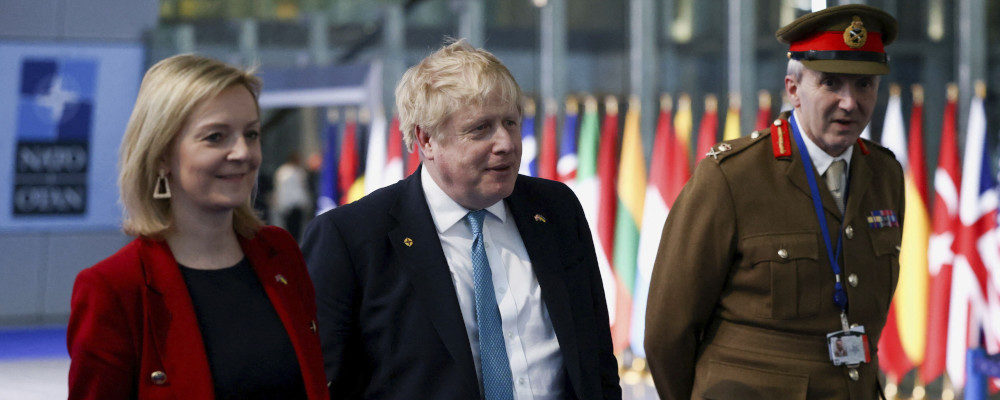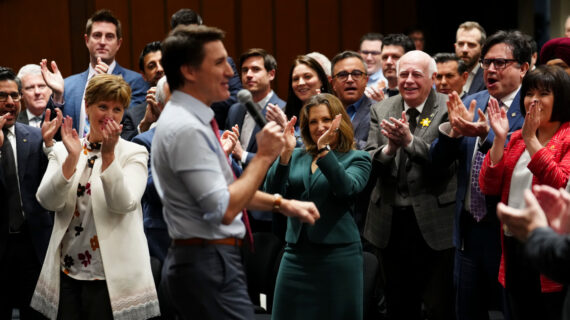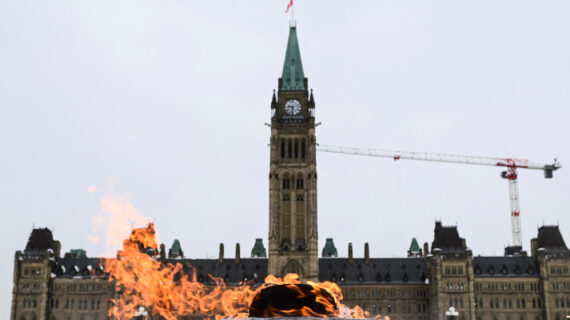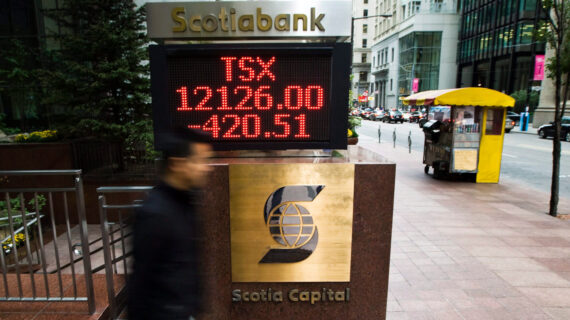As British conservatives choose a new leader, some undercurrents are becoming more obvious. Resentment at the forced removal of Boris Johnson is there, and it is growing. In the words of one campaign veteran, the Mozart of British electoral politics was done in by the Salieris of the parliamentary party. A comeback after 2024 should not be ruled out.
And when it comes to policy, just as living standards and the inflation outlook worsen considerably, the “tax cuts now” versus controlling inflation argument has become the main dividing line. However, no candidate has electrified the race with a dramatic and radical policy intervention. Instead, the membership seems to be reacting to a perception of the candidate’s outlook or posture, rather than specific pledges, choosing Johnsonism (with Truss) over Cameronism, as Rob Colvile has written.
Whatever the result, by Sept. 5, Britain will get a clear end to the current interregnum where power has all but drained away from the Johnson regime and all major policy decisions are on hold. But the outcome will only mean a new prime minister is appointed. It is then a question of who they will appoint to their cabinet and crucially, how they will choose to govern, but the media has not yet given this much attention.
We have had a month of hustings and neither of these questions have even been posed, let alone answered by either candidate. The risk is that a new prime minister, with insufficient time to prepare a transition and to think hard about the role, will slip into the groove of how “government” is done (quite poorly) today. This will only continue the trend of presidentialising the office of prime minister, and could see them choose a weak but loyal cabinet, where ministers are not empowered and nothing is done to address civil service dysfunction.
Not since Blair, and before him, Thatcher, has anyone aspiring to be prime minister thought hard about how to govern, rather than what they want to do when they get the chance. And the result shows. Britain’s political landscape may be making a lot of noise right now, but it is the government machinery that desperately needs servicing. Apart from tokenistic mentions of cutting diversity budgets and slashing headcount, civil service reform to make government actually deliver for taxpayers has not even featured in the current campaign. Serious proposals from the Commission for Smart Government took a backseat to the Covid crisis, and even post-pandemic, when the public health emergency had actually strengthened the case for reform, the momentum seems to have dissipated.
But the urgent need to modernise the civil service and make it more accountable and efficient has never been greater. Setting the Covid response aside, we have seen a decade of mismanagement of key issues like Britain’s lack of energy security, or how it has allowed London to become a global hub for economic crime, or how billions are wasted on failing systems of primary health care, or the cosy and corrupt world of defence procurement. The common thread with all of these problems and how they seem to outlive successive prime ministers is the ineffective leadership at the top of departments, and the erosion of effective administration delivered by heavy-hitting cabinet ministers.
One of the reasons why the next PM may struggle to make an impact is the way the system now operates, with the degradation of the cabinet as a vehicle through which they can govern effectively and hold civil servants to account. The British Parliamentary system vests real power in the collective action of MPs and always has, but according to long-established convention — until at least Thatcher and arguably until Blair — the Cabinet was the leadership vehicle for elected government and 10 Downing Street was mostly just accommodation. Since Baldwin, the PM was the face of an election campaign, but the government they headed was a collective affair, where a dozen or so senior politicians led major departments and took legislative and policy decisions without everything being an initiative of the PM.
The problem today is the way in which prime ministers have turned the cabinet into a large, inconsequential committee of cheerleaders. Ultimately Boris Johnson himself suffered because he chose a weak, compliant cabinet that was not trusted or empowered to deliver government policy, and where all glory had to accrue to the Team Captain. This was not how he operated as mayor, but it is how the Whitehall machine encouraged him to act as PM.
Until the 1990s, cabinet was a small, closed forum that acted as a hub for discreet, high level strategy debates, or life and death decision making in a crisis. The modern cabinet is a spectacle — a crowded, choreographed affair where there is no time for organic discussion and where genuine, unprompted disagreement between dozens of ministers is unheard of. Compared to the statesmen who made up the much smaller cabinets of Attlee, MacMillan, or even Thatcher, the current setup is like watching a student drama production. The real actors are somewhere else. As a result, weekly cabinet is a PR exercise, subject to leaks and briefings, and most of the people in the room know that nothing important is ever going to be decided there.
The civil service has colluded in this degradation in order to strengthen its own control of the policy agenda so that a weekly meeting of over 30 ministers and those with “rights to attend” is over-serviced by officials and runs to clockwork, but can never actually take any important decisions. The political importance of the cabinet can be measured in inverse proportion to the expanding size of the table around which it sits. According to this study, the UK’s Cabinet is one of the world’s largest in a comparison of democracies — only Canada’s was larger, and as of August 2022, it is now 31 members, or about twice the size of the Cabinets in France or Germany.
The same tradition applies in Canada and Australia and even here, the profile and power of prime ministers versus their own cabinet ministers has grown. However, this trend is not quite so harmful to democratic accountability in Ottawa or Canberra, because the federal constitutional structure vests real power with devolved governments and their elected state or provincial premiers. In England, the unitary state is geared to making Whitehall all-powerful, so how the government there operates is reliant on more internal checks and balances than a system constantly trading off between higher and lower tiers of government.
The modern British cabinet’s flabbiness and lack of institutional authority is then made worse (and partly explained by) the poor calibre of those who have been appointed to it. To sit in on cabinet as an advisor is to lose a lot of confidence in the decision-making machinery of the modern British state – or at least what cabinet government has been allowed to become. You have a charade of watching MPs — most promoted way beyond their abilities — finding themselves sitting around the famous cabinet table because of their loyalty to the PM and not because of their administrative competence, and then just trying to wing it.
Combine the end of the Cabinet as an institutional decision-making body, with a media class obsessed with political soap operas and all but averse to reporting on real issues in the administration, and you have a recipe for government to become a one-man (or woman) show, where the prime minister is the only person who matters, and where the hard, knotty problems that require deep insight, are hardly ever reported on.
As such, the current Tory leadership race has not been about the cabinet a new PM will build and lead, or the strength and depth of this senior team, but instead a reminder that modern British politics has become a personality contest. But how much does any of the chatter about personality traits matter if either contender won’t approach the role with humility and with a team mindset?
After removing the party’s most popular post-war leader since Thatcher, Tory MPs have set in train a process where the Conservatives’ ageing, mostly white, southern party members will decide the occupant of a powerful office, and that person will see themselves as an individualistic leader, with a ‘mandate’ to pursue their pet policies, rather than the head of a governing body.
Whoever wins, do we want government done like this? Do conservatives think this is a good development? Because if you allow the PM to be the only politician who matters, the next election suddenly hinges on the electorate’s opinion of one person — making politics in Britain more like America or France. Usually a bad development, as Edmund Burke might once have thought.
The end of a powerful cabinet supported by a strategic “centre” in Downing Street makes for a less democratic system with fewer checks and balances built-in, and means more power for unelected officials. We could still choose to revive cabinet government and in the aftermath of ethics scandals and declining trust after more than a decade in office, the voters might welcome more collegiality, more ministerial independence, and a bit more tradition.
But such a shift can only happen if the next PM themselves wants it. The winner of the leadership election next month should be humble and seek consensus — accepting how narrow and time-limited their electoral mandate is. After all, the British public will not have voted them in, and the 2019 voters who backed Boris in large numbers are probably less than enamoured with them — their support will have to be re-won all over again.
If the next prime minister wants to shore up their own position against this backdrop and stand a chance of tackling the huge and looming policy challenges, they need to do government differently and delegate more authority to a trusted Cabinet of “big beasts.” Rather than monopolizing even more power in No. 10, they should be restoring some of the traditions that British parliamentary government used to depend on — an expert leadership team in No. 10 giving more focus to policy and implementation over visits and media, and a smaller more experienced cabinet comprised of senior MPs with the best track record of driving reform through staid and stubborn bureaucracies.
Those politicians — the likes of Gove, Malthouse, Hunt — are regrettably, in very short supply in the current ranks of the Conservative parliamentary party. Leaving them out of the next cabinet and appointing instead the best media performers or the most loyal supporters of the winning candidate, isn’t just a recipe for failure, it would be an insult to the electorate in very challenging times.




